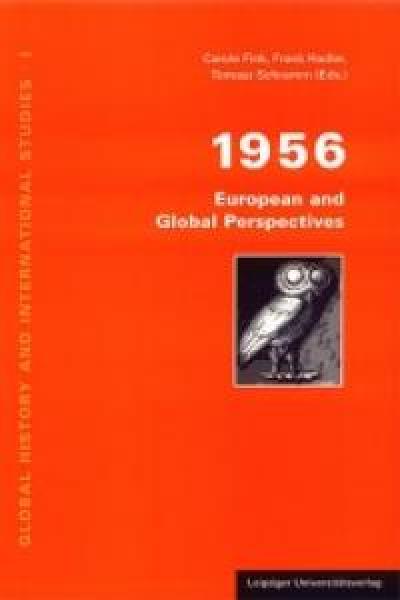1956: European and Global Perspectives

Fink, Carole
In post-World War II European history, the years 1945, 1968, and 1989 have been labelled the three transformative moments. In a larger perspective – and this is the hypothesis of the volume – the year 1956 was a marker of global change. Just past the mid point of the twentieth century, this was not only the year of Khrushchev’s denunciation of Stalin, the Polish and Hungarian revolutions, and the Sinai and Suez invasions and retreats. In the global history of the Cold War, 1956 was one of the most violent years, when the Super Power rivalry – ideological, political, geopolitical, and military – affected every aspect of human life on the planet. On the other hand, in that tumultuous year global movements and a global consciousness were developing. Even the most powerful nation-states, once the ultimate sources of power, wealth, and authority, faced a world of increasingly porous frontiers, which goods, people, and ideas – as well as the looming nuclear cloud – could now penetrate.
The volume assembles new scholarship based on original research, which transcended national borders and provided a long-term perspective on the events of that epochal year. It is based on two preliminary conferences in 2005. The first, which took place in April in Smolenice, Slovakia, centered on „The European 1956“ and was co-sponsored by the Association Internationale d’Histoire Contemporaine de l’Europe and the Historical Institute of the Slovak Academy of Sciences. The second conference, which took place in July, in Sydney, Australia at an affiliated session of the International Congress of Historical Sciences, was focused on „The Global 1956.“
In this volume the three editors and thirteen authors coming from Australia, Canada, Europe, Israel, South Africa, and the United States have undertaken a fresh look at several major historical questions emanating from the year 1956. They present their findings on the principal issues of 1956: the Cold War, decolonization, and the new global culture that emerged a half century ago. The book is organized into four sections containing essays that integrate new archival findings with the questions and approaches of contemporary international historiography. Part one takes us inside the heart of the Cold War. Part two deals with the first major upheaval in European communism. Part three, moving towards the future, covers the birth of the Common Market, the crisis in the Middle East, and the onset of decolonization in Africa. Part four discusses other global issues marked by, but also transcending the Cold War, which lay the basis for the next half century.
Investigators
Filters: 2006
